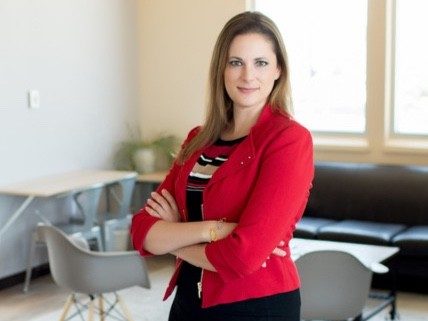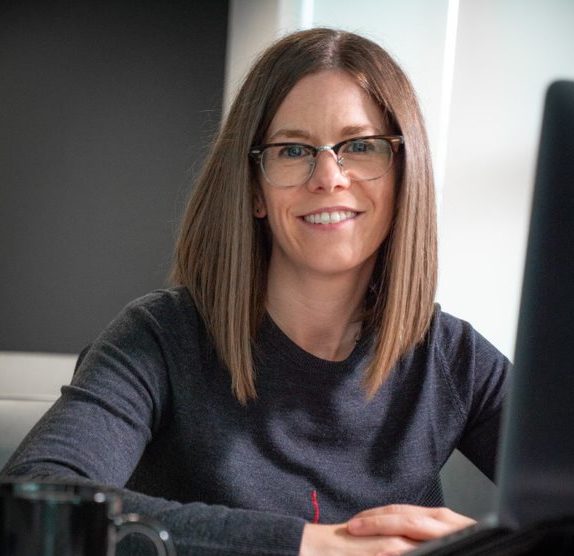Warren Whitlock has done a lot in his life. From writing the first book ever about Twitter to running a printer business.
But as he reflects back on his career, he recognizes some patterns that have helped him stay ahead of the curve as things continue to change.
Today’s hobbies and interests are tomorrow’s careers
Warren’s printer business happened when he was working with someone doing a lot of typesetting and saw the potential in printers you could have at your office. He got into social media in the early days and has now built a career out of it. Pursue things and learn about them because you never know what your next career will be.
Stay curious and knowledgeable
Warren credits reading magazines and newspapers like Infoworld and the Wall Street Journal as helping him have an advantage in knowing where to move next. Today, you need to subscribe to newsletters and attend events, but you need to always be aware of the new things that are out there.
Be the one with the stories
There’s no shame in being the one who played it safe in life. However, you’ll be a much more interesting person if you take risks and jump into things before they are ready. You may fail, you may lose money, but everything tends to work out ok in the end. And by the end, it’s fun to be the one with the great stories.
Be an early adopter
Warren was one of the first to try Twitter, blogging, podcasting, Facebook (for adults) and many other tools out there. It can be intimidating to try to stay up with everything, but once you understand the power of new and emerging technologies, there are a lot of new fields that will open up for you.
Links
Quotes:
“The world is changing so fast, you can’t count on being in business in 10 years. What are you going to do about it?”
Welcome back to The Digital Workplace podcast. You’re in for a treat today. We have Warren Whitlock on the show. He is the CEO of Stirling Corp. He’s the host of the Distributed Conversations podcast and an expert in emerging technologies. Warren, great to have you on the show. How are you doing today?
Hi, great to be here.
Warren, I’m excited that you’re on the show today because you have such a wide variety of experiences to share with us and you’re going to walk us through a lot of those things today. We’re going to be talking about leadership. We’re going to be talking about innovation and culture. But just start off giving us a little bit of background about who you are.
Yes, of course, I have this breadth of experience. I’m old. I’ve been through a lot of things. Actually, I’ve never had a full-time job that was paid on salary. I’ve had some salary commissions and things like that. I just basically out on my own all the time. I realized after losing three jobs in sales in 11 months, one of them I was a sales manager for six years, and then two more, I realized that I didn’t fit in with working for people. Never fired for whether I had an ability to sell, just that I was young, I thought I knew more, by the way, if I was an employer, I would have fired me back then. I’ve always had the idea that making content and sharing things with people is a good way to reach more people than you can reach just by one on one talking out of your mouth. You can go up to every door and knock on it and try to sell your brushes. For those those of you younger than 50, they used to sell brushes door to door. So they used to sell many things door to door. Hi, is your mother home? No, I don’t think she wants any. I did a lot of door to door type selling in my youth, both as a kid and then I was actually a missionary for a while and talked to a lot of people. And from that experience, especially by the time I was trying to teach Buddhists about Christianity, a hard sell. We’ll put it that way.
Yeah, you got to really work at that.
Yeah, what I learned was, what’s the most efficient way to get to people? And I’m wondering, why did they send me out here to go door to door when actually that’s not what the instructions were. It’s what you did if you didn’t have something better to do. It’s always been my mode to try to get messages out to people. What I’ve learned after 40 years of missing a lot of innovations or getting the innovations but not necessarily profiting them. I had a PC before anybody. I was born in the same year as Gates and Jobs, which if you go with the outliers, it was a good year to be born for microprocessors. I was a missionary while they were starting company. So my first career was in radio, and mostly off air selling sales manager. And we learned that there’s a lot more people that want to buy than ever are the people that are interested in you selling them. People would rather buy, today more than ever, the idea of going door to door, you’re going to get somebody in a mask and a bat if you go door to door today. I’ve lived in five different houses in the last 15 years. I’ve been to Las Vegas, met a lot of people, have a lot of friends. I don’t know my neighbors. I’ve never introduced myself to the people next door. I live on a corner. We go out of the driveway, turn on the major street, and bam, there’s the world. I don’t know my Amazon driver because he just rings the bell and runs. We don’t get to know people that way. And I would like to know my Amazon driver. I love talking to my Uber driver, all that innovation.
But back to innovation over the last 40 years. What I’ve seen is I got a PC, I didn’t necessarily invest in PCs. But now today what I realized about that time is the people that went and worked for some startup, say Osborne Computers. They called it a portable. It was really a luggable, bigger than a sewing machine, not the kind of thing you just want to pop into the office with. It would take 20 minutes to get it set up, so not exactly leading edge by today’s standard. But I love that company because it went from nowhere. Osborne was a guy who wrote computer books, he went out and got some funding, started a computer company. He had millions of dollars invested and built his own campus, buildings, power, and more, and was gone. And it seemed like that was 18 months, probably a little bit longer, but that’s my memory of it. And I said, this is so much more exciting than reading business week to find out what’s going on in the world. But what I really enjoyed was, the magazine was InfoWorld, came once a week, and I just devoured it, because it’s talking about what’s going on in Silicon Valley. And this is kind of like the time that they were moving to PCs. So what I figured out was none of those people that went horribly broke, some probably got out of the industry into something else. But they’re all doing okay because of that experience. I learned a little bit about programming, found out that my eyes aren’t good enough to see differences in the code. Today, you don’t do as much typing to code, but back then there’s no way I’m going to be a coder. And so I kept up selling, understanding small businesses, and then had my own business, which was in laser printers. So we were a hardware tech sales service, we did the toner cartridges, doing all that 17 years. I refer to that as my 17 years in the suburbs, raising children. And so the internet came along, I was on the internet in 1984, was online before that with bulletin boards, and a time sharing thing, too long of a story to tell. When the social media came along. I was already into whatever it was. When blogging came along, I was already doing something like blogging, but it wasn’t called blogging. The software got better for a blog and I go like, that’s great. As soon as podcasting came along, great, I got to do that. And I was on LinkedIn the year it started, and Facebook as soon as they let the adults in. And so when Twitter came along, I decided to write a book, because I was promoting books at the time. And I thought I went to Amazon, I did my research, there was one reference to Twitter. It was a bird in a children’s book. And I’m going like, okay, I’m the first book about twitter.com. I can do that. And we wanted to put together a book in 30 days. We essentially did, my co author, Deb Cole, and then we decided she wanted to add a lot more to it. And we decided we had plenty of time. So we didn’t come out for six months. We’re still the first book published about Twitter. And at the time, I owned a publishing company. And so that part was easy. But I had to go, oh, man, the hassles I went through to get my book on Kindle. Kindle was brand new. I had to have a distributor. The distributor didn’t know what to do with that, didn’t know anything about writing the listing right for Amazon, all very important things. If you’re going to sell on Amazon, the way the listing is written is everything, that and ads. So in my spare time I gained expertise in SEO because there was no SEO when I started doing it. Been doing my own SEO for 25 years now. But I didn’t want to be in the social media business, I didn’t want to be the trainer, the person that said how to adjust to this. I just knew that was the next thing to do. So blockchain came along, I’ve changed my tune. I decided I’m in emerging technologies. This is what I’m good at. I’m always looking at the future. And so if you want to know about how the world’s gonna be 5, 10 years from now, let’s talk that. And then one of the things there, though, is if you innovate too quickly, you’re going to wind up with a focus on the innovation instead of making sure the orders get shipped. And I’ve done that wrong many times.
Let’s spend some time there because I think that’s where a lot of leaders find themselves. They think of themselves as innovative. But they’re also like committed to one business model. They’re committed to one technology. So where’s the line between going too far and being too obsessed with some new fancy, sparkly thing?
When an entrepreneur friend tells me that they’re going to learn coding, had the same guy told me he was going to learn coding, and he was actually pretty good at it, and go for a law degree, and he’s an entrepreneur. I’m going like, pick a path. And he is a serial entrepreneur, he’s done a lot of things. He’s made millions. And while he was making these decisions to study and whatnot, he didn’t have the millions. And so, how will that turn out? I don’t know. The next thing I heard from him, he was actually doing a marketing program in a legal field and partnered up with an attorney. So he didn’t need to be the attorney and was doing quite well at it. So, there’s ways to go on all of these things. But do you really need to go to college and learn somewhere in the middle of your business? I found out that it’s not about is there a clear path to it. It’s trying stuff. The reason I got into laser printers was I was paying a couple hundred dollars a month in typesetting. No big deal. It was making money in the business. And I needed typesetting on a regular basis. But it was a 30-minute drive over to pick it up and almost never sent anybody else because I wanted to make sure the work was right. I couldn’t afford to wait to the cycle going through three days to get the typesetting again. So I’d have to drive a half hour, half hour back. I hated doing that. Really nice person running the typesetting machine in her garage. Yes, for you youngsters, before we all had beautiful desktop with documents, you had to pay to get typesetting. And that was still computerized. You go back far enough, you molten lead to do a typesetting for a newspaper.
What is this you’re talking about, Warren? These aren’t real stories, are they?
Yeah, I’m going down a path here. Maybe I’ve gone too far. So I learned about all that kind of stuff, I wound up buying a laser printer. And when I bought a laser printer, next thing I know, I’m in that business for 17 years. I pivoted. It was great. So you don’t know where these things are going to happen. It’s serendipity. But what I got to say, you’ve got to have some check on it to make sure that you’re not, well, like what I just did with the story. I went off on five minutes of story where I could have just said, I happened to buy a laser printer, and that started the business. That would have been enough. So it’s really easy to get carried away with that sort of thing. I want to do podcasts. So I’m going to go to podcast movement. I’m going to study which microphone to get. I’m going to do in depth research about audio processing, and blah, blah, blah. Or you could pick up a phone, talk into it. It’s recorded on the other end and it becomes an RSS stream. My biggest success in podcasting was Blog Talk Radio, where I literally had a co-host who would tell guests, we’re not sure we can hear you. Can you lean the laptop a little bit towards you so the mic can pick you up? They wouldn’t even call in. They would try to use their crappy microphone. And the balancing was off, that sort of thing. But you know what? We did 40 shows for a book that we were writing and led to just phenomenal thing. The last episode I interviewed the Atari, Chuck E. Cheese guy, Nolan Bushnell, was one of the best interviews ever. I still get goosebumps thinking, I interviewed Nolan Bushnell, a hero from when I first found out about Atari console, and arcade games back in the 70s. And so, you get to do things like that. When I introduced myself as a podcast host, opens a lot more doors than saying I own a small business. And so I do things like that. But you don’t have to do all of them. You need to pick which one’s going to work. I think more important to share with your audience is the positive side of that is you should be encouraging this kind of experimentation and innovation in all your staff.
That was a question for me is thinking about, like, if you’re the type of person who’s maybe not as naturally interested in that, does that mean you need to build that in with other people? Or is that something you need to model for others? What would you say?
Again, your company has to have a culture. I say today, the culture has to be innovation. I remember learning this from Tom Peters. Tom Peters, for those of you who don’t know, wrote the best selling book of the 80s for business called “In Search of Excellence,” identified some companies and what they were doing for excellence. Because of corporate conglomerates, and the way that things go, there’s more studies done on how many of those companies are now no longer household names. He tells the story about talking to the Ford franchise owner, and this is in the 90s and maybe early on, I think it was 90s. There are so many Ford franchise dealers coming to the meeting, they have to hold it in three parts. So he had to do it three times to groups of 500. And he would always remind them of what he had learned at MIT. Look to your left, look to your right, one of the three of you is not going to be here at the end of this program. And he was saying that to the Ford franchisees, and they’re laughing, because they’re successful business owners. One of the largest businesses in many towns are the car dealers because of sales volume. And he says, no, it’s not going to be that way. He wasn’t telling them the internet was going to get them or we were going to do something different. He just said that the world’s changing so fast, you can’t count on being in business in 10 years. What are you going to do about it? That was 25 years ago, I heard that, was at least 20. And now, let’s think about it. Again, he said, what has happened in the last 30 years? What do you think is going to happen in the next 30 years? Fax machines were brand new when he started saying this. Today, what’s changed? The iPhone changed the world so much, and the other smartphones, of course, but the internet and broadband, and now 5g, is going to mean that every human is going to be connected. If you’re still trying to sell your brushes door to door, well, you’re dead now because that company’s long gone. But if you’re still thinking that cold calling is a way to do sales, it’s wrong. I mean, if you approach me and tell me you want Stirling to buy something, you better know who we are and what we do. Because it’s out there, it’s on the web, we got a site, we tell people what we do. If you approach Warren, and you haven’t googled me, I found myself saying it by accident once. Somebody wanted to show me this phenomenal software and they wanted my opinion, because it included social media, and I was supposedly the guru. And so I get on this call with a friend at an advertising agency. And this was new for the agency software, and he was promoting it. And he wanted me to be introduced to it because we were friends and he knew there would be some money to make. He’s told me all this. He’s told the other guy all this. They had a lunch and discussed me. And then we get on the phone call. And it was still a phone call. This is only 10 years ago. So it should have been video, but it wasn’t back then. And first thing he says to me is, tell me a little bit about yourself. Now, I’m on a podcast today. And you asked the same question. That’s okay because your listeners don’t know about me. But this guy coming into a meeting to try to sell me on something wants to spend 10 minutes getting to know me. Have you not googled me? And then I felt completely embarrassed because I’m kind of a big deal online, but no brag, just fact. I don’t really feel like I’m somebody that special. Million followers is no big deal. But what I want to realize is, yeah, I was right. I was rude. But I was right, that I expect somebody to know who I am, what my company is. So when somebody contacts me with a blind email and says, do you have any need for programmers? No, that they may not know. We have a way of getting you all the leads you need. I’m going to go like, well, I’m in the fortunate position of grounding in leads. There are certain people I’m going after, but I’m not going to get them by some automated program sending me leads. I feel it’s kind of like when they sold email addresses in the early days. They said 4 million email addresses on this CD. You just knew it was spam because it was on a CD. Somebody else bought the same. When you figure out the things are just dumb like that, you go like, I got to figure out a better way to do it. So I’m getting to know you. We’re having a good time here. When I decided to talk about business between us or something, we got a rapport going. And it’s simple. It’s never been any different. It’s exactly what I did when I went door to door. I remember as a kid watching how Dad got out of the car. No, he rolled down the window because it wasn’t self serve gas back then. We’re at a gas station. And they’re checking the oil for us and doing all the things they used to do like that. And I’m sitting in the backseat just amazed that Dad is talking to this stranger. Stranger Danger didn’t even exist. I don’t remember ever being taught that as a kid. But just the fear of, I don’t know if I could walk up to that guy and talk to him. How do adults do that? And so that stuck with me. I think we’re all shy. But I reached a point where I said, if I want to get along with people, I’ve got to have rapport. And to have rapport, you tell a story. So that’s what I am today. I’m a storyteller. Have you noticed?
I love it. Love it, Warren. I think the thing I’m taking away the most from everything you said was that concept of you are most likely not going to be in the business you’re in now in 10 years. It’s very unlikely.
Your business is going to change.
Yeah, something significant will change.
Yeah, the robots aren’t going to come in and take all the jobs, but just like I work a lot less harder than my father did at the steel mill and his grandfather did on a farm. My kids and my grandkids are working less. We say dang millennials, they never want to work, but that’s not true. We’re good people. We want to do what’s right, but I can’t say that I’ve ever really had to work a day in my life. I mean, I’ve had to move some boxes to move my household at times. And I’ve dug a hole and stuck a tree in it. But I’ve never had a job where I had to show up and every day where extra protection so I don’t kill myself lifting, and all the things I’ve watched other people have to do. I’ve never had to sweep floors, a little bit maybe in high school. But, and a hammer? No, I don’t build things. I use my mouth and my brain. I feel very lucky that way. Very much blessed. But it changes. It changes from day to day. And now today with mobile, it’s even more that way. We expect things to be there. If I buy something online, and there’s a store nearby, I don’t want to talk to somebody about where I need to return it. I want to go to my Walmart and they’re going to take it back. And I’m not sure what Walmart’s policy would be today. But today, they probably would. In the 90s, that was our policy, which ships across the country, and we always guaranteed seven days. We were selling used laser printers, weighed 50 pounds. And if it got to you and you didn’t like it, we would pay to have it returned to us. When I did that, it cost me a little bit in some extra shipping. But what it really did was quadrupled my sales because people knew they could trust us. And so today, that’s what I do. If everything I’m doing crashes today, if suddenly I can’t travel anymore, I come up with something else to do. One of the first things I did was invest in Zoom. And it’s done pretty well this year. These are not financial recommendations. That’s the only one I’ve ever been able to get in on like that that I felt very comfortable about, oh, yeah, the whole world is going to start using Zoom. And that’s trends that are happening anyway. Let me really emphasize that to close off. If you want to know what’s going to happen in the future, count on it changing faster than you know what to do to keep up with it. And don’t ever think you’re going to go back. We’re never going back to a pre COVID world. It’s impossible. We can’t. Not only have we screwed up enough things in the handling of it, but it’s just there’s more effect on the world than just what happened to the people that unfortunately caught the disease or died. And so it’s a different world now. But that’s good news. Because the technology that is ready to implement today, let’s not talk about how prevalent 5g will be five years from now, you could get 5g now, but you could do more with 4g, you could be doing more on your website, you could get more services, you could answer the phone a little bit quicker, you could do whatever it is you need to have done. There are better ways to do everything. And if you’re not constantly innovating, you’re just not going to keep up.
Warren, I love your spirit. I love your ability to see things as they’re happening and recognize that it is happening while the rest of us just kind of sit back and wait to see what goes on. So thanks for sharing all these stories. I feel like it’s both a history context lesson and a future lesson all at the same time. Just seeing it all in context has been really fun.
It’s been my pleasure.
So I’m assuming you are extremely easy guy to find online. Well, I know you are because I found you and different things. But anywhere specific you want to send listeners?
Yeah, just anything at Warren Whitlock in social media or whatever. My website’s warrenwhitlock.com. Stirling Corp is a company that is not much depth to what we do online directly but we own other properties and we’re developing some technology to revolutionize publishing. And so that part’s in stealth mode right now but happy to talk to people about publishing, social media, whatever. Easiest thing to do is use a tweet. Let’s have a public conversation. Let’s help 40 other people while we’re helping you.
Cool. Warren, thanks so much for being on the show. We appreciate it.
My pleasure.
Warren Whitlock’s mission to to help brands improve the results of their digital marketing.
Throughout his career, he has created new strategies to use influence and persuasion to help his clients to achieve their goals. “I set hard sales goals and measured performance but never forget that people hate being sold, but love to buy.”
Warren Whitlock has been an entrepreneur in the computer, publishing, and media industries. He looks for collaborations where brands can share resources, extend their reach and give customers an experience they will want to share with others.
Warren is currently partnering with IBM Futurists and a few brands and startups along with keynotes where he can engage executives transforming their organizations for an abundant future.












